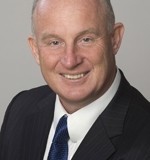EDITOR’S NOTE: Over the past several weeks, The Common Sense Canadian has published the energy positions of the BC First Party and NDP leadership hopeful Mike Farnworth. Now we are pleased to bring our readers a statement from NDP leadership candidate John Horgan.
—————————————————————————————————————————————–
Early on in my campaign to lead the BC NDP, I put independent power producers on notice that a John Horgan-led government will immediately put a moratorium on run of river power projects and conduct a review of existing power purchase agreements to determine if they are in the public interest. That might not make me many friends, but it’s the right thing to do.
The days of secret agreements that guarantee huge profits for private power operators at the expense of ordinary ratepayers will be over. The days of pet projects at the whim of politicians without any regard for the public interest will be over too. I would immediately move to restore the BC Utilities Commission to its rightful place as an independent oversight body that looks out for all British Columbians.
I was part of the Mike Harcourt administration that encouraged run of the river power projects – but only when it made sense. We had a plan that would see small communities served by true micro-hydro projects that would get them off diesel generators. Our plan required projects to be small in scale, without fish implications, and built for local energy needs.
But the BC Liberals saw the potential for their friends to make a buck (A LOT of bucks!), and the result of their ideologically driven agenda is what you see today – a crippled BC Hydro forced to jack rates by 50 per cent to keep up to rising costs from tens of billions of dollars in contractual obligations so their rich friends can get richer on the backs of British Columbians.
The reckless energy policies culminated last June when the government forced the so-called Clean Energy Act through the legislature with closure and no debate. Now our new “families first” premier has instructed her new energy minister to find a way to keep those rate hikes low because we’re heading into an election and she wants to appear the hero. That is just not good enough. The Clean Energy Act needs to be revisited and may need to be re-written completely, and I am committed to doing that as Premier of British Columbia.
As the BC NDP’s energy critic over the past five years, and an energy advisor to NDP governments in the 1990s before that, I recognize that energy issues are inextricably linked to environmental issues. That’s why I have embedded the two into my comprehensive environmental protection plan, and made that plan one of four key priorities of my campaign along with economic growth and social justice, education and training, and honest government.
My plan for the environment includes addressing climate change and creating a real green energy plan, protecting our environment including reinvesting in parks and the land base, providing real land and water stewardship, and protecting our ocean and coastline. I am committed to restoring the integrity and strength of our environmental assessment process that was groundbreaking when we introduced it in the 1990s, but has been seriously eroded under a decade of BC Liberal rule.
I will work with the environmental and business communities, working people, and experts to develop effective ways of reducing our carbon footprint, conserving energy, and protecting our natural environment. I also believe that we must create opportunities for young people to acquire skills necessary to build and compete in the new green economy. That includes replacing a plan to spend a billion dollars on smart meters with a plan to make a smart investment in home energy retrofits.
My environmental plan won praise from the Wilderness Committee when I was the first to release one. Gwen Barlee said, “Horgan’s environmental platform is far-reaching and comprehensive. It makes a commitment to a healthy environment and sets the bar for other leadership candidates to follow.” Noted environmental activist Vicky Husband recently told The Tyee, “[John Horgan has] shown a very strong environmental bent and sense of responsibility. If he becomes leader of the opposition, the environment will become a major issue.”
British Columbia is a commodity based economy that is transitioning to a new green economy. That transition will require us to both protect our environment and invest in green technology development and training to ensure British Columbians have the skills to take on the jobs of the future. Under my leadership, an NDP government will ensure that the natural legacy we inherited from those who came before us is protected for those who will come after us.





